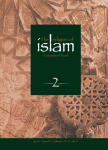The Religion Of Islam vol.2

Islamic Legal Status of a Married Woman
To sum up, the Islamic legal status of a married woman is decidedly superior to that of a European woman. The former enjoys social immunities which allow the fullest exercise on her part of the powers and privileges given to her by the law. She acts, if sui-juris, in all matters which relate to herself and to her property, in her own individual right, without the intervention of husband or father. She never loses her own identity on becoming wedded, by remaining related to her father’s family. She appoints her own attorney, and delegates to him all the powers she herself possesses. She enters into valid contracts with her husband and her made relations on a footing of equality. If she is ill-treated, she has the right to have the marriage tie dissolved. She is entitled to pledge the credit of her husband for the maintenance of herself and her children. She is able, even if holding a creed different to that of her husband, to claim the free and unfettered exercise of her own religious observance. To enjoy all her rights of action, she requires no intermediaries, trustees or next of kin. When she is aggrieved by her husband she has the right to sue him in her own capacity.
It is both interesting and instructive to compare the above summary with another, from the writing of J.S. Mill, which gives us an idea of the corresponding position of women under the usages of Church Christianity: -
“We are continually told”, says he, “that civilisation and Christianity have restored to woman her just rights. Meanwhile, the wife is the actual bond-servant of her husband; no less so, as far as legal obligation goes, than slave commonly so-called. She vows a life-long obedience to him at the altar, and is hold to it all through her life by law. It may be said that the obligation of obedience stops short of participation in crime, but it certainly extends to everything else. She cannot act whatever but by his permission, at least tacit. She can acquire no property but for him; the instant it becomes hers even if by inheritance, it becomes ipso facto his. In this respect the wife’s position, even under the common law of England, is worse than that of slaves in the laws of olden day in other countries. By the Roman Law, for example, a slave might have peculium which, to a certain extent, the law guaranteed him for his exclusive use.([1])
[1])) “ The Review of Religions, “May 1913, states: Evidently J.S. Mill wrote this prior to the present Married Women’s Property Act; but the same position of married women as illustrated by him is still prevalent to this day under the usages of the Catholic and other Christian churches.
